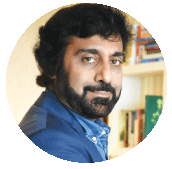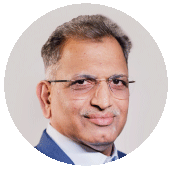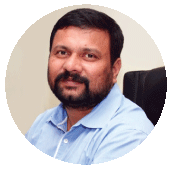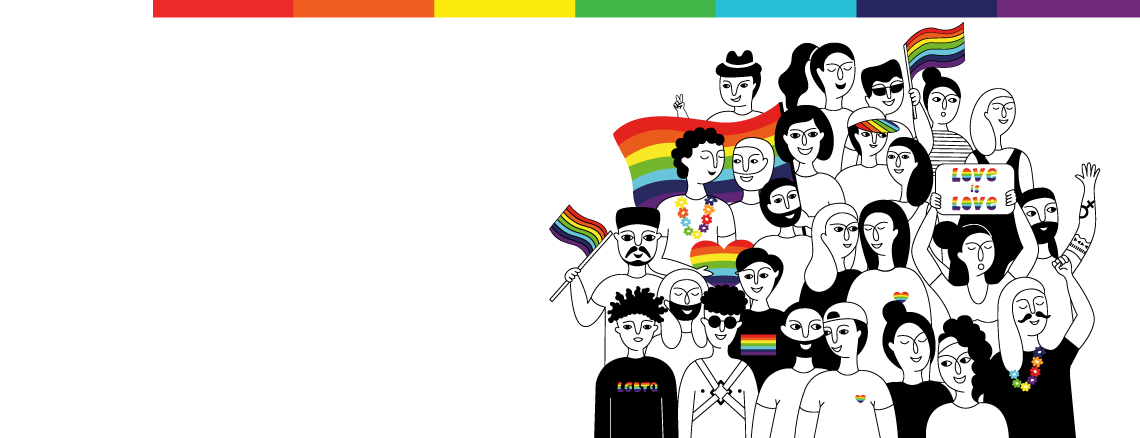The RPG Group has been building an inclusive and equal workplace for all. The hiring of trans employees at CEAT is a great example of how this can be done with everyone’s participation
The ‘third gender’. Ignored by most, tolerated by some, and misunderstood by all. In India, the third gender, comprising of the entire spectrum of the LGBTQIA++ community lives almost in exile. Most still stand at traffic signals, failing to blend in, knocking on windows in the hope of some kindness and perhaps a smile. But when they don’t get either, they keep their chin up and find a way to rough it out in the big bad world on their own.
It’s not been long since homosexuality was decriminalised in the country, and the LGBTQIA ++ community had its existence legally accepted. However social acceptance remains a pipedream. Though some corporates are starting to open their doors in the spirit of inclusion, most employees after the initial period soon realise, they don’t fit in.
That’s why, when CEAT decided to make a difference in this regard, it decided to plan for an environment as conducive, as human, and as equal as possible for LGBTQIA++ employees, much before they walked in through its doors.

S Venkatesh
The initiative stands proudly today as a successful experiment, with the deep-seated conviction of Harsh Goenka, Chairman, RPG Group and under the able leadership of S ‘Venky’ Venkatesh, President - Group HR and Member of Group Management Board.
Venky believes, hiring from trans community has been the result of a continuous metamorphosis of thoughts, beliefs and culture, distilled over time. “What began as standing up against any kind of harassment – across gender, community, or creed, gradually paved way for greater inclusion. For example, extending spousal benefits to trans as well as heterosexual partners of employees. The third stage of metamorphosis is now, with actual hiring from the trans community. It stems from the deeply ingrained human culture of the company and the responsibility it feels towards the community that mostly lives, fending on the roads in subpar conditions. They too have a right to live a life of dignity, like any of us.”
NEW THINKING

Milind Apte
Milind Apte - CHRO, CEAT transformed the plan into reality. He was ably supported by Dilip Modak, SVP – Manufacturing, CEAT. “It has to be the fertile soil of manufacturing that would deliver fruitfully on such a dynamic initiative. It has to be nowhere else but the manufacturing plants,” said Dilip.

Dilip Modak
Milind, together, with Vikas Shirke, Head – HR Manufacturing, and Arjun Singh – VP HR and the D&I champion at CEAT, drove the unique cultural transformation.

Vikas Shirke
CEAT partnered with a well-known NGO working for the cause, to understand the varied nuances of the community we all know little about. Finally, when the team felt confident, CEAT started the interview process. Seven bright transgenders walked the gate of the CEAT Bhandup plant. “The choice of the Bhandup plant was also well thought through over several discussion rounds,” says Milind. Why Bhandup, where the average age was so high and people so traditional? After all, there were plants that were far younger. The reason was Vikas Shirke’s conviction about the inclusive culture of the Bhandup staff, coupled with his ability to weave magic and get the plant’s trade union by his side. Also, if a pilot project needed to succeed, it had to be under the close supervision of its leaders. Bhandup was closest and therefore an obvious choice.
LAYING THE GROUND
Long before the hiring took place, the entire plant was sensitised about the initiative. Every employee was educated about the community – who all formed the community, how different they were, and, most importantly, the fact that they are as human in their hopes and desires, trials and triumphs as the rest of us.
They were educated about the right ways to greet them, and the ideal pronoun to be used to address them. After detailed sessions, supported with FAQ dockets handed over to every employee, there was not a single member in the plant who would not feel deep empathy towards this community at large. Every employee was now onboard with open arms and an open heart to greet the seven transgender hires. They were ready to look past the genders and physicality of the incoming hires, and look only and only for great colleagues and great humans in them.
The HR team at CEAT didn’t stop at just employee sensitising programmes. They were thinking about washrooms, changing rooms, the kind of work they would be assigned, and their future at the company. CEAT was taking responsibility of seven employees coming from a community historically ostracised and kept at bay.
It was now time for action. Milind pre-empted what these employees would be weighing as pros and cons in the jobs they were getting into, a vital move, that led to the success of this initiative. “They were not used to working for eight hours and accustomed to performing acts they didn’t consider as ‘work’ at all. They would therefore weigh the chances of social unacceptance, hard work of eight hours, and perhaps a not-so-great salary against what they were used to in their earlier professions”, says Milind. “Hence to nullify the belief that the new workplace is taxing and, on the contrary, welcoming was imperative.”
WELCOME ABOARD
Upon joining, the new hires were immediately given a feeling of acceptance, with the trade union team introducing them to employees across all floors. They mingled with all employees, shared a cup of tea with them, soaking in the RPG culture.
The feeling of acceptance and inclusion they felt was so organic and effortless that they became a part of every celebration. One of them even became a finalist in the company’s talent competition, “CEAT’s Got Talent”; a fabulous example of what an inclusive culture could deliver to an estranged community.
In terms of the kind of work to be assigned, team HR again hit a sixer by ensuring they were not engaged in tertiary roles but core jobs in HR, CSR, administration and accounts. This showed that the company was really invested in them, ready to take chances. Their salaries, were moderated and help was extended on managing their accommodation formalities.
The seven members are currently being trained in SAP. The reason is simple. CEAT is determined to make them employable in the future not just here but in the outside world too. It is determined to make them independent.
They deserve a ‘normal’ life, so it was time to bend the ‘norm’. It wasn’t difficult since RPG’s policies always stood on Employee-First principles. For example, CEAT waded deftly through the tricky waters of salary disbursal process for them. They were transgenders – transcending from one physical gender to the other.
So, while on legal documents they were called by a typical name and specified a gender, in reality, the candidate sitting in front had an altogether different name and gender. The norm was to hire the person by the name on the document, and credit salary to the account holder by the same name. CEAT bent such norms, and did so, with pride. As for all the rest, Arjun ensured that they were given no special treatment. The intent was to make them blend in, not stand out.

















